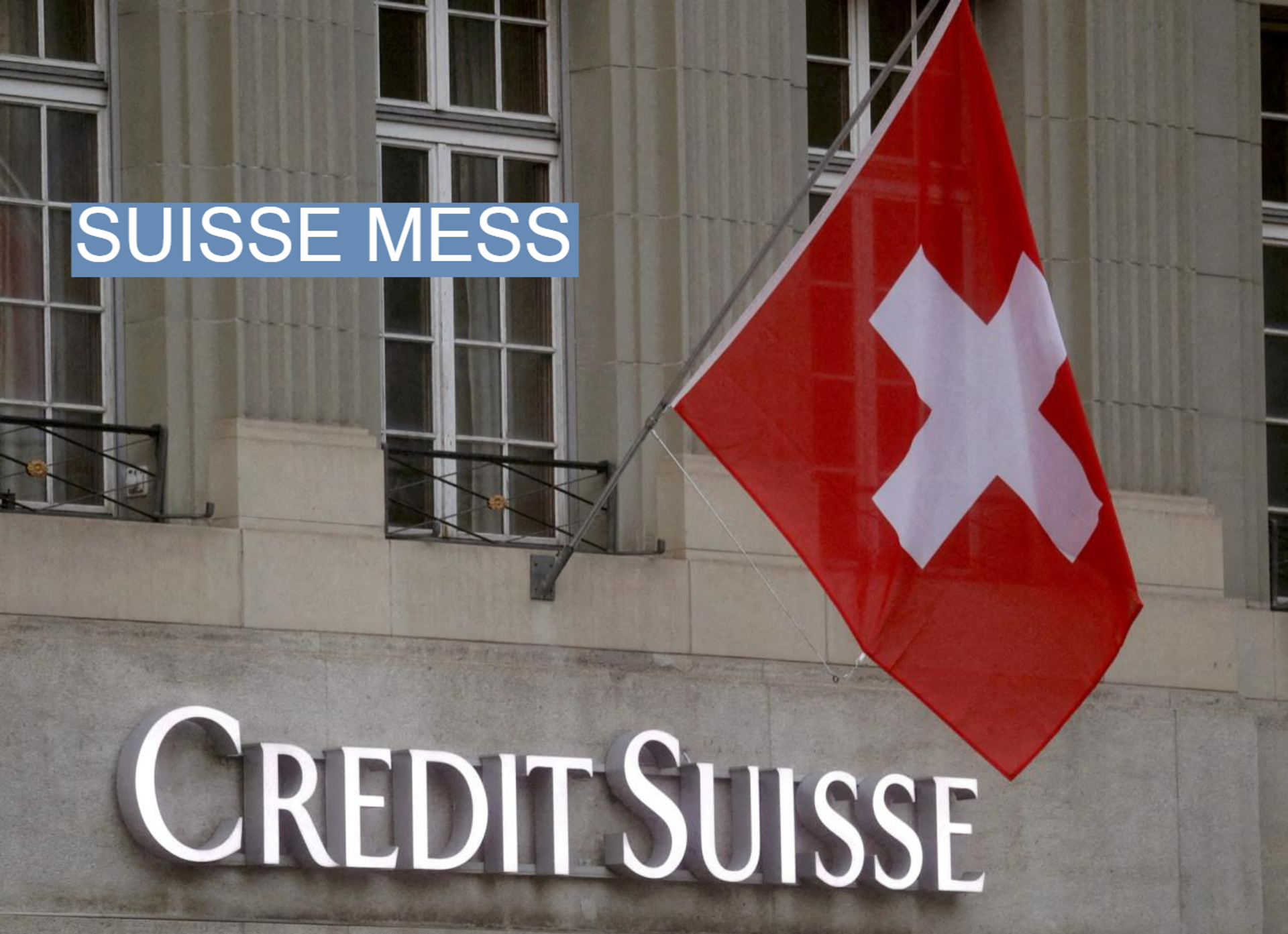The Facts
Here’s a rundown of the financial chaos on Wednesday in the wake of Silicon Valley Bank’s collapse:
- Global investment bank Credit Suisse’s stock plunged by over 30% after Saudi National Bank, its largest shareholder, said it would not buy any more shares in the bank. Swiss National Bank later said it was ready to provide liquidity if necessary.
- European stocks and banks took a deep hit. The pan-European Stoxx 600 index slid 2.4%. Germany’s Deutsche Bank’s shares slid by 9%. France’s Societe Generale dropped by 12% and BNP Paribas by 10%, while U.K.’s Barclays Bank fell by about 8%.
- The Dow Jones fell by more than 500 points after trading started.
- Major U.S. banks are also sliding, with shares of Wells Fargo falling by about 4%, Citi dropping about 3%, Bank of America falling by 1%, JPMorgan dipping by about 5%, and Goldman tumbling by 3.5%.
- Oil prices fell to their lowest in more than a year to less than $80 per barrel.
- First Republic Bank, a mid-sized California-based bank, reported major losses on Wednesday, with stocks falling more than 66%. On Thursday, major U.S. banks including Bank of America, JPMorgan, Wells Fargo, and Citi planned to deposit up to $30 billion in First Republic Bank to save it from collapse.
Step Back
The sudden collapse of Silicon Valley Bank, the second-biggest bank failure in U.S. history, raised concerns about the strength of the banking system, despite assurances from the government.
The White House rushed to preserve deposits at Silicon Valley Bank, temporarily calming customers and other banks. Start-up founders were also given full access to their accounts, meaning they could pay some employees.
But things got worse Wednesday when Credit Suisse released its annual report after a week-long delay, admitting to investors that there was “material weaknesses in internal control over financial reporting” in 2021 and 2022.
AD
